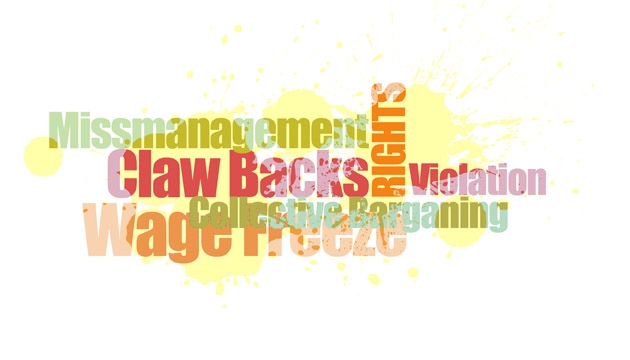On September 11, Premier Dalton McGuinty’s Liberals brought back the Ontario legislature early to get Bill 115 passed. The controversial bill banned strikes, froze wages and clawed back all retroactive pay hikes for Ontario teachers for two years. The government said the province was deep in debt and public servants, including all teachers, would have to take a two-year pay freeze. The teachers were rightly upset and pushed back, saying they had collective bargaining rights.
To counter this, McGuinty’s government crassly and dishonestly put out the narrative that if they did not pass the bill, the teachers would go on strike – throwing millions of students out of school. They did this with the full knowledge that the teachers’ unions had never made any such threat to anyone in public or in private. It was the Big Lie. When the Bill passed, the three powerful unions representing Ontario teachers and education workers immediately declared war against the governing Liberals as well as the Conservatives led by Tim Hudak, who had also supported the bill. The unions say it violates constitutional rights and have vowed to fight the bill all the way to the Supreme Court of Canada.
The Liberals’ public narrative was that the bill was required to help them eliminate Ontario’s $17-billion deficit. They decided to balance the budget by cutting education costs – specifically teachers’ salaries. Ironically, this was the one area where they had built a sterling reputation in the past decade. Investments in education and in teachers’ compensation (teachers’ salaries now average 18 per cent-25 per cent more than a decade ago) resulted in improvements that saw Ontario recognized in 2009 as having one of the best elementary and secondary school systems in the world. All this brought to Ontario courtesy of new programs in education and the dedication and hard work of Ontario’s teachers. Despite this, the Liberals decided that by imposing a wage freeze on teachers and public servants, they could save up to $430 million per year for two years. So they brought the hammer down, using the ploy that the teachers were planning a strike action to try to gain public sympathy for their plan. In other words – they fabricated a crisis.
Critics point out that the real crisis lies in the McGuinty government’s financial mismanagement and lack of accountability that has led to the highest deficit ($17 billion) in the province’s history. Taxpayers are on the hook for over $2.5 billion in misspending, fraud and boondoggles. First was the $1 billion that disappeared in the eHealth debacle. This was followed by the Ornge air ambulance fraud and scandal at a cost to Ontario taxpayers of $275 million, then by the $750-million cost to provincial taxpayers for the Oakville Energy plant scandal. The final bill has yet to come in on the cost to taxpayers for the off-the-rails Ontario Green Energy Act that saw the Ontario government subsidize hundreds of millions of dollars in solar and wind power projects, with no return on investment other than higher energy costs for all Ontarians. For the first time in its history, Ontario – once the economic engine of Canada – has been declared a have-not province. A sad state of affairs for a province with a population of 13,505,900 – or a third of all Canadians!
By October 31, the two biggest unions representing elementary and secondary school teachers were urging their members to withdraw from any voluntary activities as a show of protest of what they’re calling “draconian” legislation. True to their word, they did not strike – even after the legislation was passed. On October 11, the Elementary Teachers’ Federation of Ontario (ETFO) filed a court challenge against the Ontario government’s Bill 115 on the grounds that the law, which strips the education sector of its right to bargain collectively, violates rights set out in the Canadian Charter of Rights and Freedoms. (ETFO represents 76,000 elementary public school teachers and education professionals across the province and is the largest teachers’ federation in Canada.)
“We want all Ontarians to understand that the Canadian Charter of Rights and Freedoms exists to protect the rights of individuals, even when governments seek to override them,” said ETFO President Sam Hammond. “That is the strength and backbone of democracy in Canada.” Similar challenges are also being filed by the Ontario Secondary School Teachers’ Federation, the Canadian Union of Public Employees (CUPE) Ontario, and the Ontario Public Service Employees Union. In his remarks outside the Ontario Superior Court of Justice, Hammond pointed out that the Charter guarantees the right of people to organize, engage in collective bargaining, and withdraw services to advance workplace goals.

